10 reasons why the Full English Breakfast is one of the world’s great meals
Famous the world over, the ‘full English’ breakfast is making a comeback, finds Ellie Hughes, as she tucks into a good old fry-up of eggs, bacon, sausages and beans.
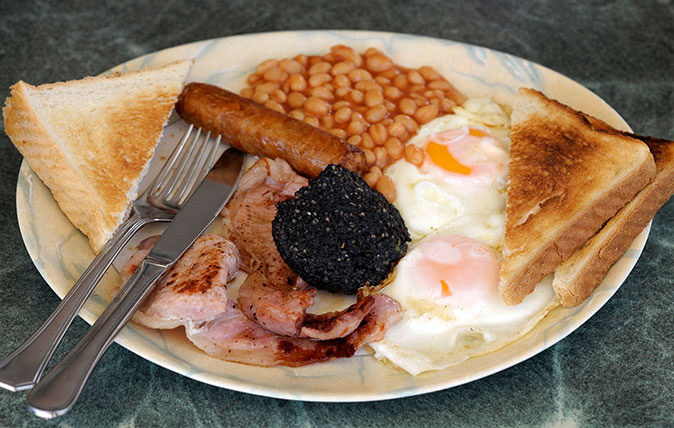
The English breakfast is one of the best-loved national meals in the world. Sir Winston Churchill refused to start the day until he’d polished off his Full English in bed – along with a cigar and a weak whisky and soda. Nothing quite marks Britain's cultural hegemony more than a full-blown fry-up.
It's as popular as ever
‘I don’t think it will ever fall out of favour,’ predicts Maarten Geschwindt, former head chef at The Wolseley in Piccadilly, London, now in charge of the kitchen at The Landmark London in Marylebone. ‘It’s the absolute staple – there is still high demand for it on a daily basis.’
And in spite of the trend towards more fashionable and healthier (though vastly more boring) breakfast alternatives, recent statistics suggest we’re still sticklers for tradition: sales of eggs and bacon are on the increase this year.
It's an ancient British tradition
'The idea of the English breakfast as a national dish goes right back to the 13th century and the country houses of the gentry,’ explains Guise Bule, chairman of the English Breakfast Society, who has spent considerable time researching the first meal of the day. ‘In the old Anglo-Saxon tradition of hospitality, households would provide hearty breakfasts for visiting friends, relatives and neighbours.’
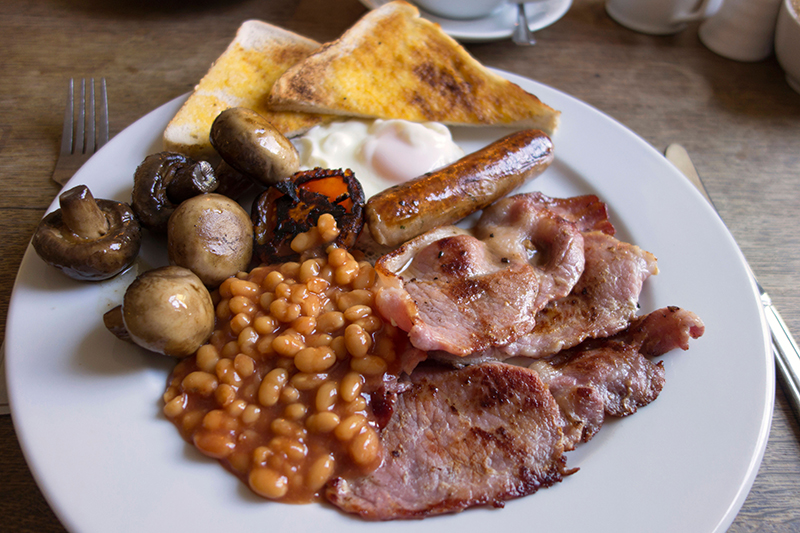
It's a showcase of magnificent British food
Food anthropologist Kaori O’Connor explains that a decadent breakfast was an ideal that people aspired to. ‘It became a precursor to a day’s hunting or shooting and gave the host a chance to show off the excellence of his estate’s produce… fine hams or excellent cheeses, smoked fish or rich cream,’ she writes in her book The English Breakfast.
It's moved with the times
The original Full English actually bore little resemblance to modern-day fry-ups. In fact, it wasn’t until the Victorian working classes adopted bacon and eggs as a staple that the ingredients began to be standardised. Their basic cooked breakfast with tea and toast became a daily routine and provided workers with the energy and full stomach needed to sustain them through a day of gruelling manual labour.
You can tweak it any way you like
The basics are generally the same, but the varieties are near-endless. From extravagant brunches served in chic London restaurants to fat-laden fry-ups in greasy spoons, exactly what does or doesn’t belong on the plate depends on whom you ask.
Exquisite houses, the beauty of Nature, and how to get the most from your life, straight to your inbox.
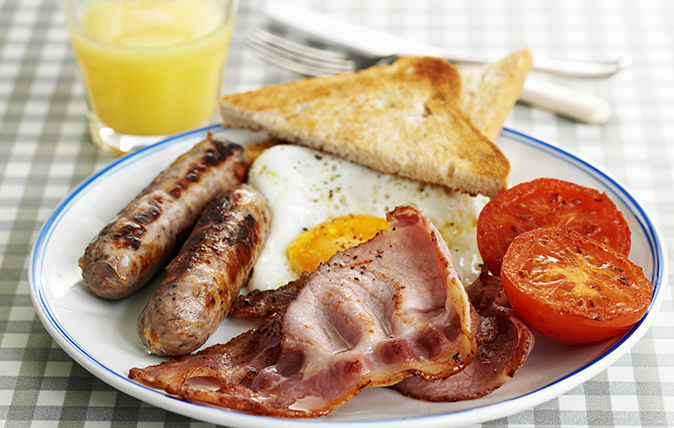
The Fry Up Inspector, an anonymous food blogger who has travelled the country in search of the perfect fry-up, believes a full English should include the following: sausages, bacon, eggs, mushrooms, tomatoes and toast. ‘I personally like beans with mine, too, as the plate can seem a bit dry without them,’ he divulges.
Mention baked beans to Jeremy Lee, head chef at Quo Vadis, and the response is a loud harrumph. ‘I just don’t get them,’ he sighs. ‘If you really need something to dip things in, add tomato ketchup.’
Of course, the idea of putting tomato ketchup within six feet of an egg yolk would be enough to send many right-thinking people screaming for the door. Yet brown sauce, generally more divisive, seems more widely acceptable.
Take breakfast at The Wolseley, for example. It's a traditional affair of sausages, bacon, fried eggs, tomatoes, black pudding, baked beans, chestnut mushrooms and two slices of toast, and with brown sauce considered de rigueur.
At the Hawksmoor in London – where steak is king, but breakfast comes a close second – executive chef Richard Turner serves a mind-boggling array of comestibles, including bone marrow – ‘a decadent lubricant to spread on your toast’ – bubble and squeak and pig’s-trotter baked beans (haricot beans stewed overnight in pig’s trotters).
It's the ultimate showcase for the brilliant British banger...
All the chefs we spoke to agree that quality meat is a key ingredient in the traditional full English. ‘We produce the most fantastic variety of sausages in this country from breeds such as the Lincolnshire, the Cumberland and the Gloucester Old Spot – each has its own distinct flavour,’ extols Mr Lee.
‘At Quo Vadis, we use various types. The most important thing is that the pork should be minced finely, mixed with breadcrumbs and contain plenty of dried herbs.’
...and also for bacon and eggs, no matter how you prefer them
When it comes to bacon, ‘back is best’, according to the English Breakfast Society. ‘It needs to be sliced properly, so that the rashers include belly and loin,’ counsels Mr Bule. Contrastingly, at The Wolseley, streaky bacon wins the day.
As for the eggs? Either fried or poached is fine by us so long as they're beautifully cooked and slightly runny – and everyone has their own tricks for getting htem just right. The Hawksmoor opts for Burford Browns, for example. ‘They’re really nice and tasty,’ recommends Mr Turner. ‘I was always taught to fry eggs in butter, but now I use olive oil. It makes them crispy round the edges and they look great on the plate.’
Quo Vadis, on the other hand, chooses Clarence Court eggs for their sunset-orange yolks. ‘Eggs are often the most difficult thing to get right as everyone likes them cooked differently,’ acknowledges the Fry Up Inspector, who likes his runny, but with no uncooked white.
It's pretty much the only chance you ever get to eat black pudding
For some, the mere inclusion of black pudding is equally contentious. ‘There’s a huge gulf between a good black pudding and a terrible one,’ points out Mr Lee, who sources his from Stornoway. The Wolseley, however, offers French boudin noir in its breakfasts, due to its ‘lovely firm texture’.
But there's a real demand for black pudding at breakfast, as Joe McElroy, founder of Daily Bread, a cafe in Tunbridge Wells, has found. ‘To begin with, we didn’t have it on the menu, but customers started requesting it, so we went in search of some,’ he explains. ‘It comes from Ian Chatfield, a local Kent butcher, who knows his stuff.’
The regional versions are different, interesting and just as good
‘White pudding makes a breakfast Irish and hash browns make it American,’ pronounces Mr Turner. You might well get laverbread if you’re in Wales, while a good Scottish breakfast – a big favourite in the Country Life office – can often include and haggis and tattie scones. Sublime.
And finally, it's always the right time for a fry-up
If you've got this far in this article without starting to drool and feel hungry, well, you're made of sterner stuff than us! It’s time to slip on an apron, whip out the frying pan and bring home the bacon.
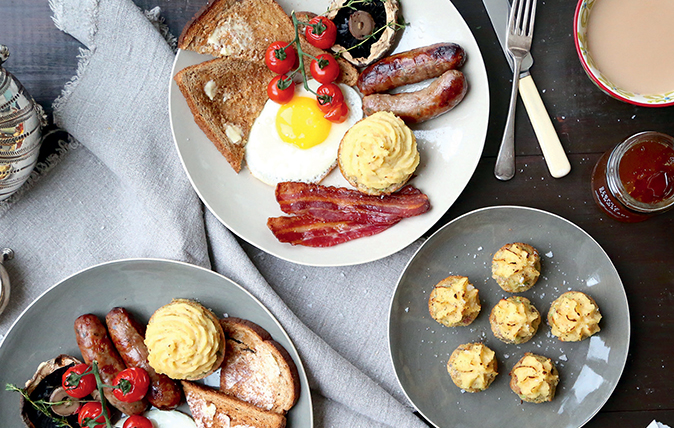
The full English breakfast with savoury parsnip-topped muffins
Baked into muffins and served with the classic English breakfast or wrapped in bacon and roasted, just two of our
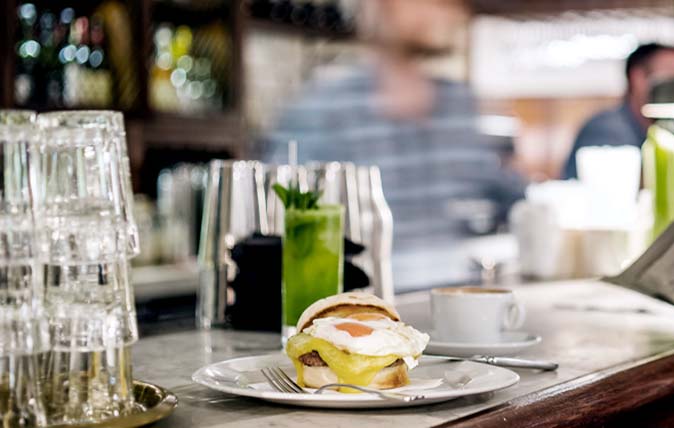
Top London breakfast and brunch spots
The best places to go for breakfast or brunch this spring in London...
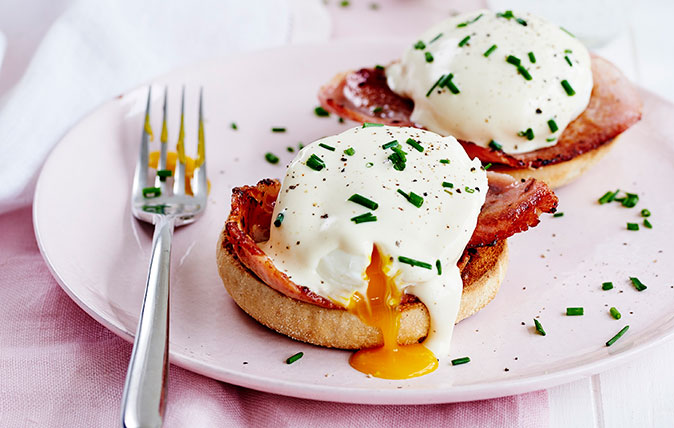
How to make cheat’s Eggs Benedict, by The Goring’s Shay Cooper
We all love Eggs Benedict when we're staying somewhere lovely – but it always seems too much like hard work to
-
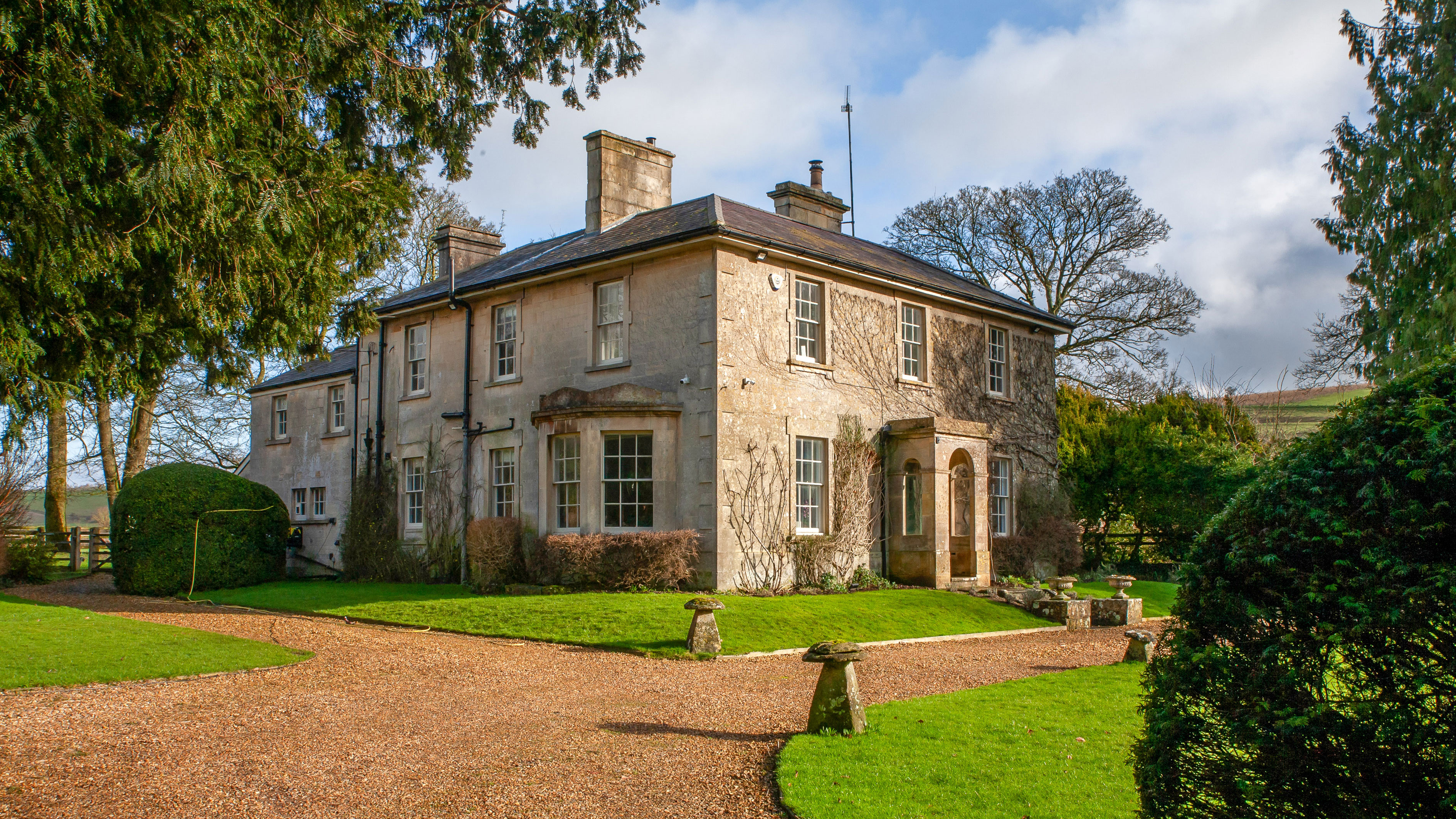 A Georgian farmhouse that's an 'absolute gem' in an ancient village on Salisbury Plain
A Georgian farmhouse that's an 'absolute gem' in an ancient village on Salisbury PlainJulie Harding takes a look at the beautiful West Farm in a gorgeous Wiltshire village.
-
 Can you guess the landmark from its gingerbread copy cat? Take our quiz
Can you guess the landmark from its gingerbread copy cat? Take our quizToday's quiz takes a detailed look at the gingerbread works on display at London's The Gingerbread City — and asks if you can guess which iconic landmark they are.
-
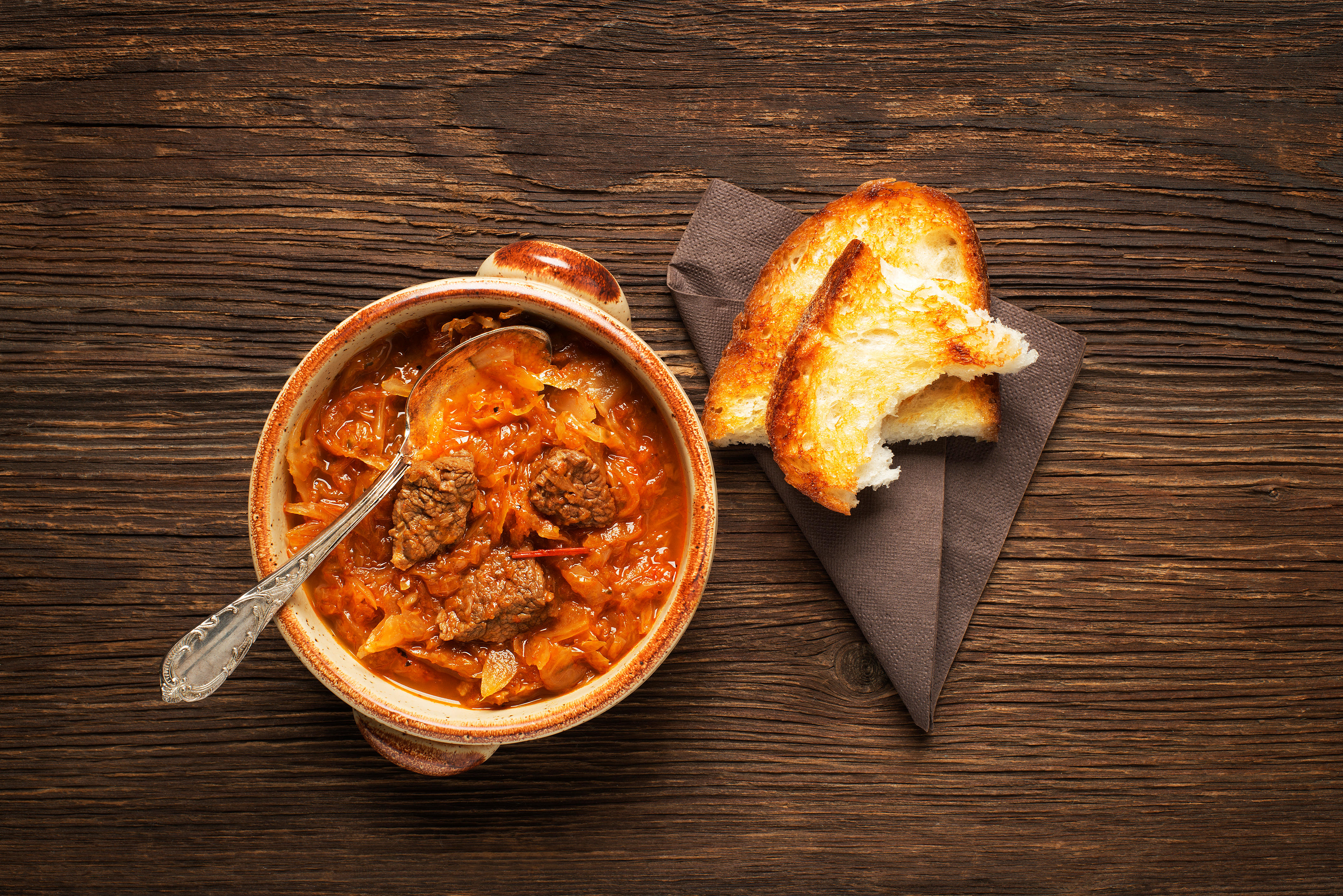 A paprika-spiked goulash recipe to keep you warm as the nights draw in
A paprika-spiked goulash recipe to keep you warm as the nights draw inThe classifications of the Eastern European country’s rustic, paprika-spiked gulyás stews are as multitudinous as they are delicious, proclaims Tom Parker Bowles.
-
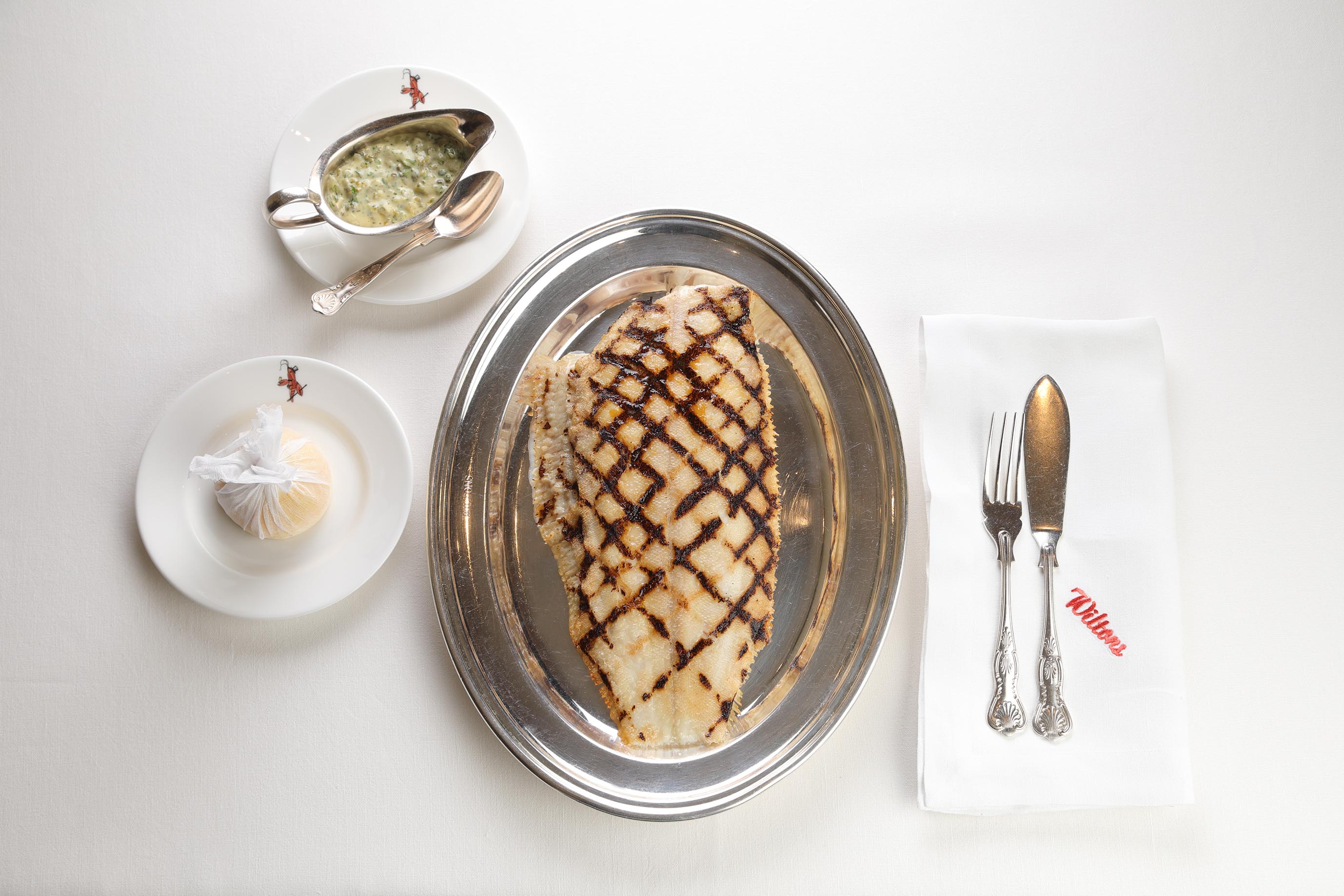 What is everyone talking about this week: Is the Golden Age of fine dining over?
What is everyone talking about this week: Is the Golden Age of fine dining over?It currently costs a restaurant around £35 to procure a Dover sole, but they cannot list said fish for anymore than £45. So, does the current financial climate spell an end to fine dining?
-
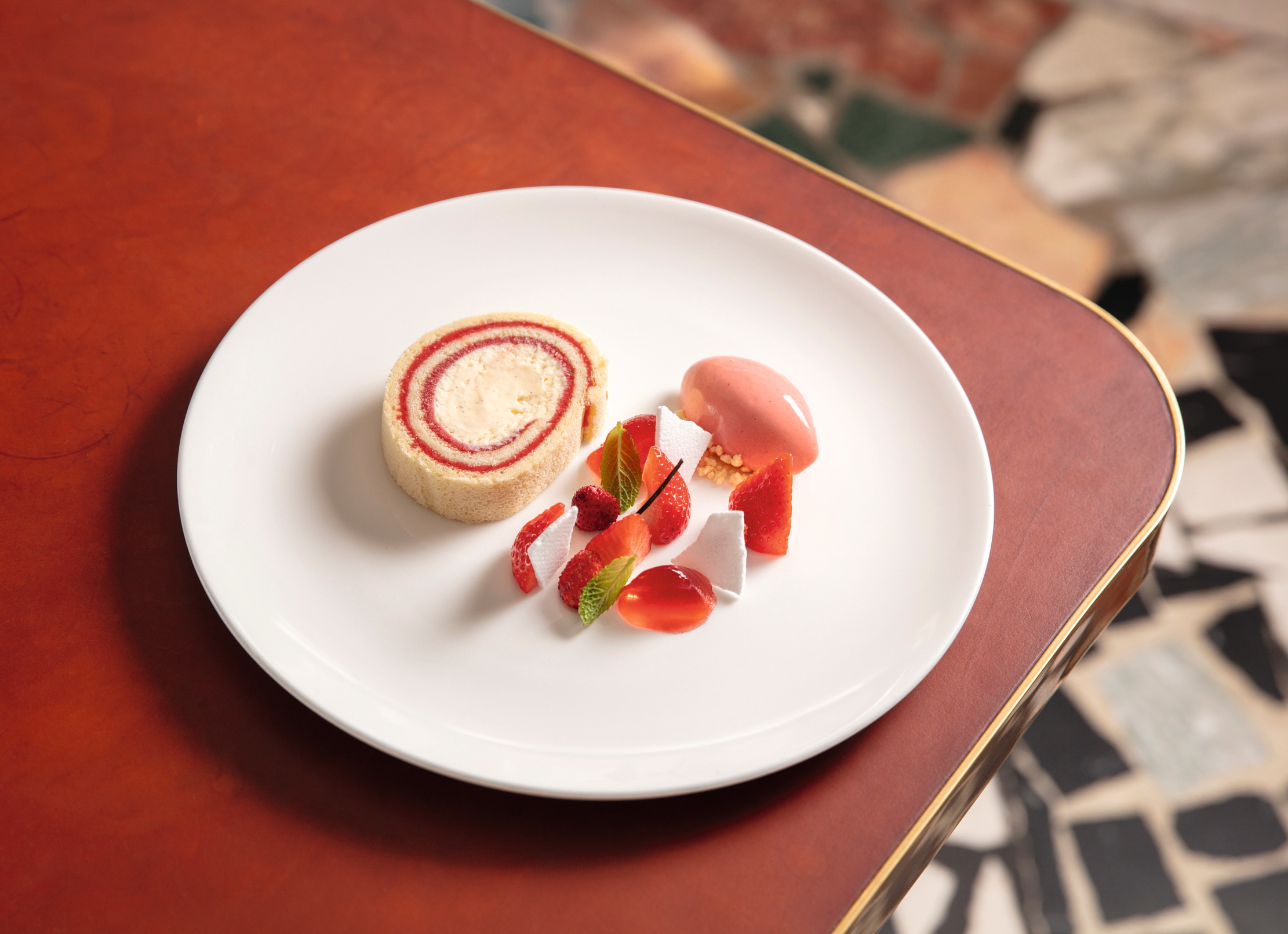 No more froths, no more foams, no more tweezers. Classic dining is making a comeback. Thank god
No more froths, no more foams, no more tweezers. Classic dining is making a comeback. Thank godFrom prawn cocktail and Arctic roll to starched tablecloths and ‘nicotine cream’ on the walls, it’s out with the new and in with the old in the restaurant world
-
 A vineyard for sale on the slopes above 'the best beach in Britain' is for sale at just £650,000
A vineyard for sale on the slopes above 'the best beach in Britain' is for sale at just £650,000In the beautifully unspoilt Devon village of Bantham, an award-winning vineyard is for sale. Toby Keel takes a look.
-
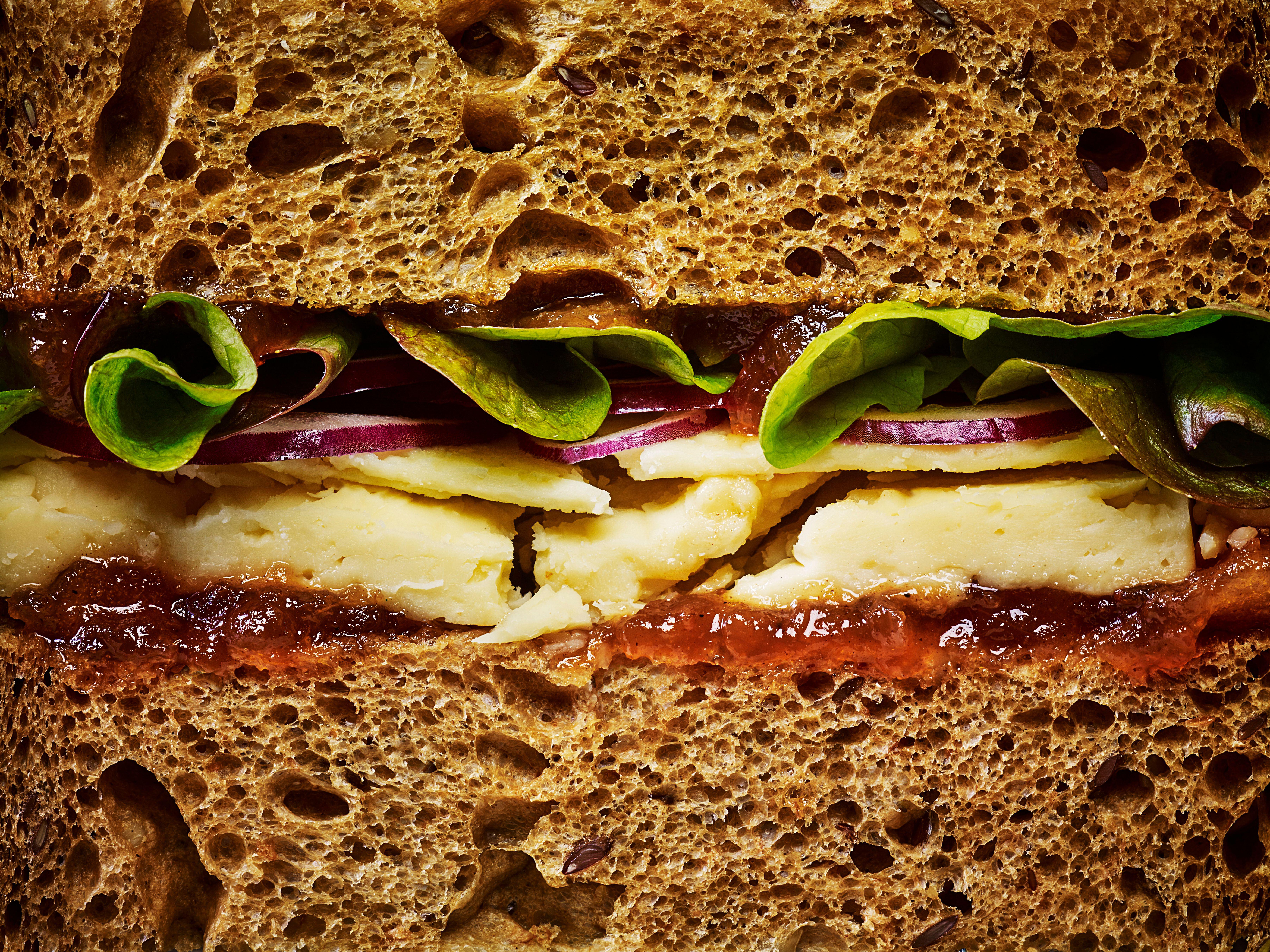 The nine best sandwiches in London, tried, tested and digested
The nine best sandwiches in London, tried, tested and digestedThe sandwich is back and it's bigger and better than ever. David Ellis reveals where to find the best ones in London.
-
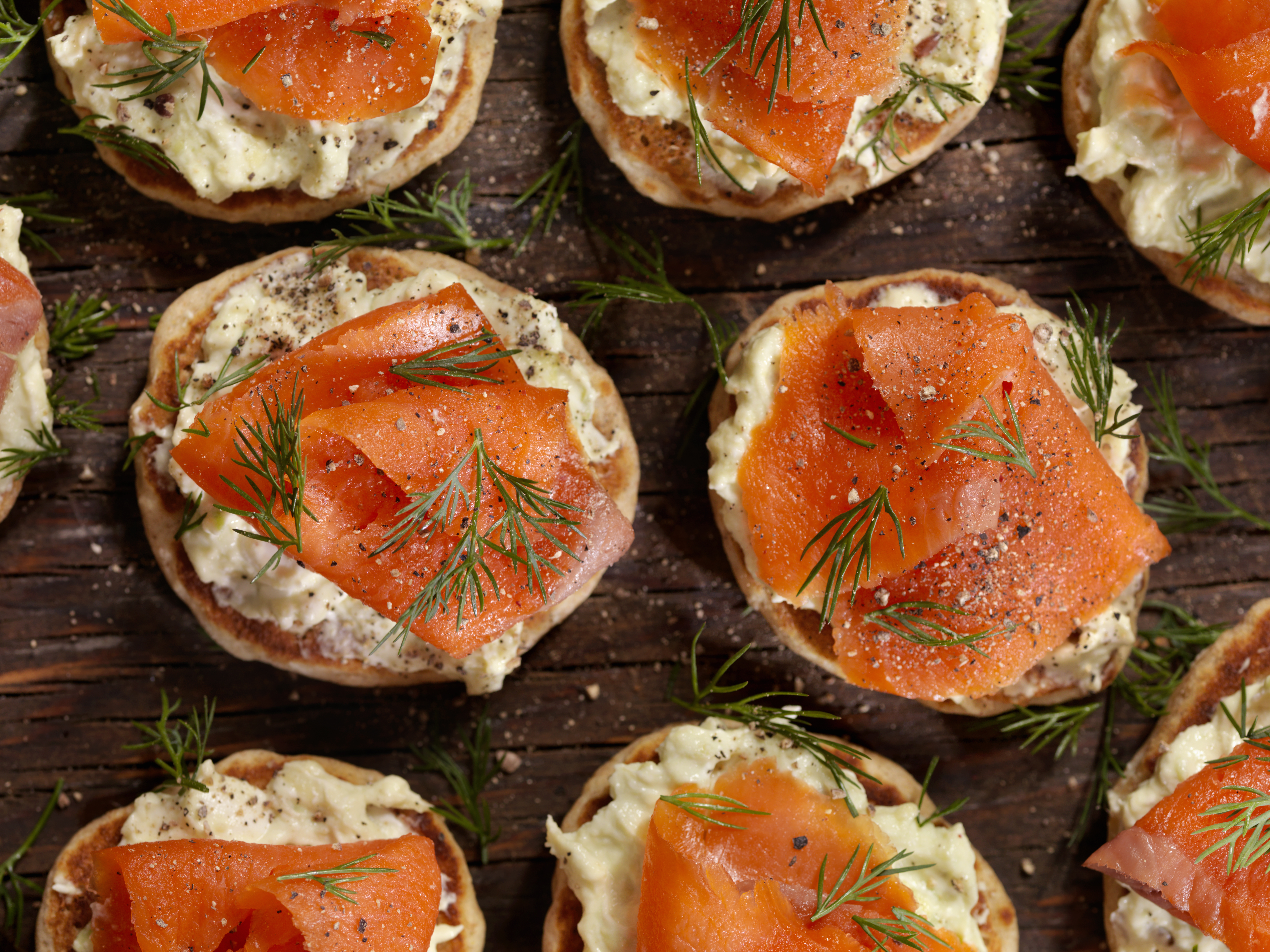 'Someone once proffered a tray and said to me: "Would you like an eat?" I’m not sure I’ve ever seen that person again': A snob's guide to canapés
'Someone once proffered a tray and said to me: "Would you like an eat?" I’m not sure I’ve ever seen that person again': A snob's guide to canapésTeeny, tiny food can throw up some big problems, says our modern etiquette columnist.
-
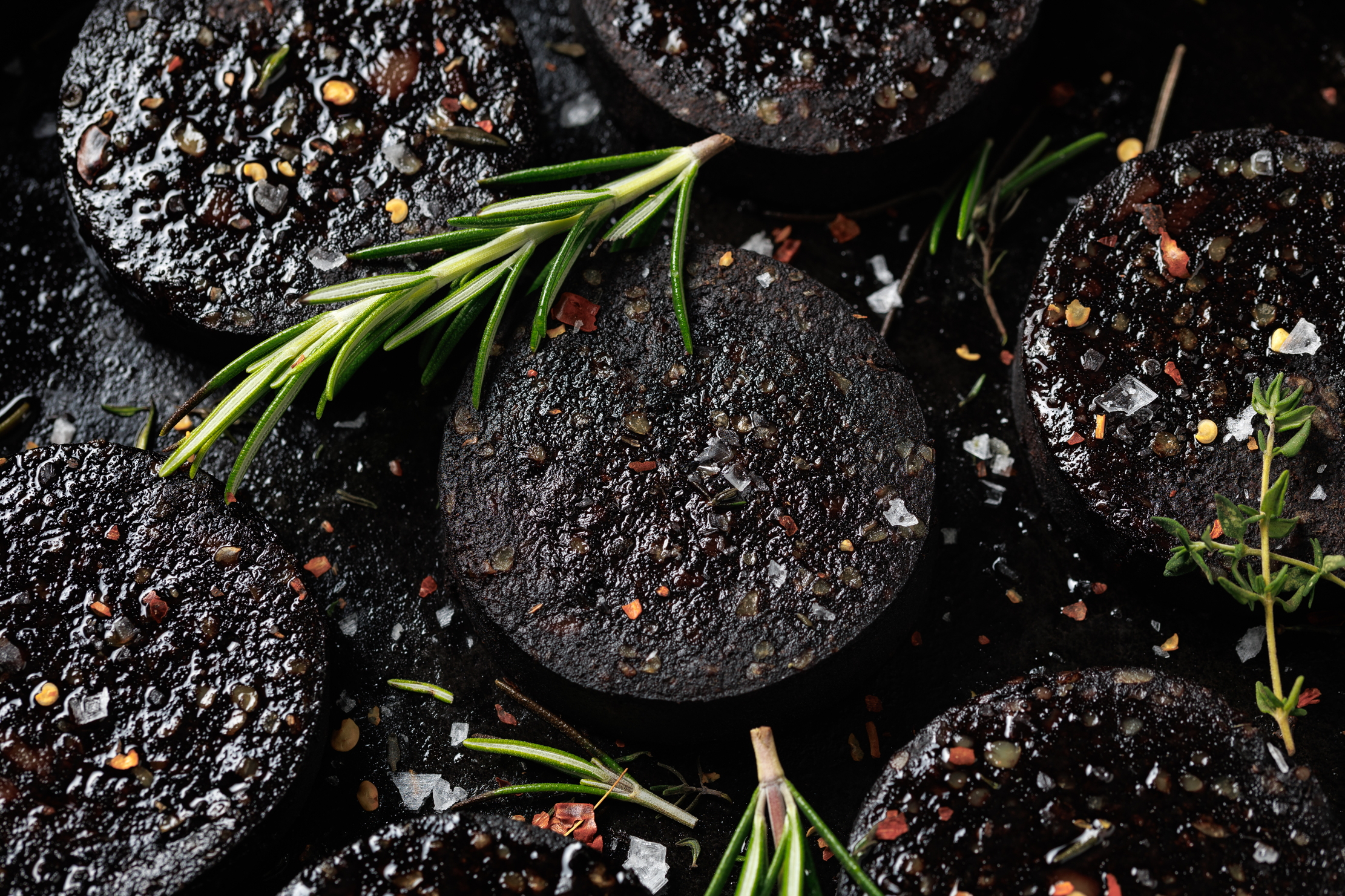 Made with porpoise blood, eaten with beaver tail: The not-so-normal history of the black pudding
Made with porpoise blood, eaten with beaver tail: The not-so-normal history of the black puddingAncient, but still popular, both very global and very local, much loved and at one point fiercely disdained. Bound up within the beloved black pudding there’s so much culture, so much history, and so many stories.
-
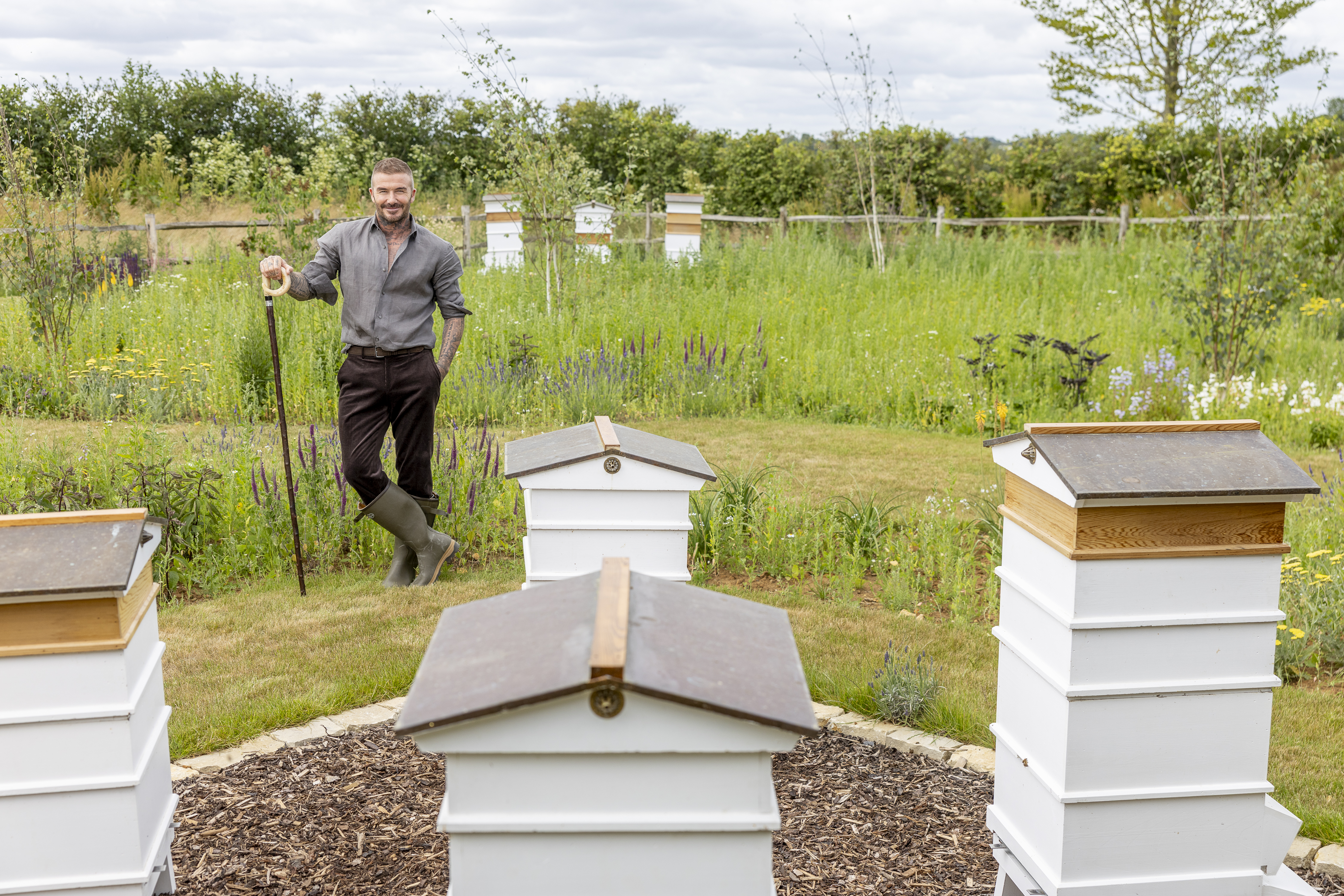 'My sister Catherine shares a love of bees and has a few hives herself': James Middleton, Jamie Oliver and Sir David Beckham on the pleasures of harvesting your own honey
'My sister Catherine shares a love of bees and has a few hives herself': James Middleton, Jamie Oliver and Sir David Beckham on the pleasures of harvesting your own honeyBeekeeping is a star-studded hobby and has much to offer, finds Jane Wheatley.